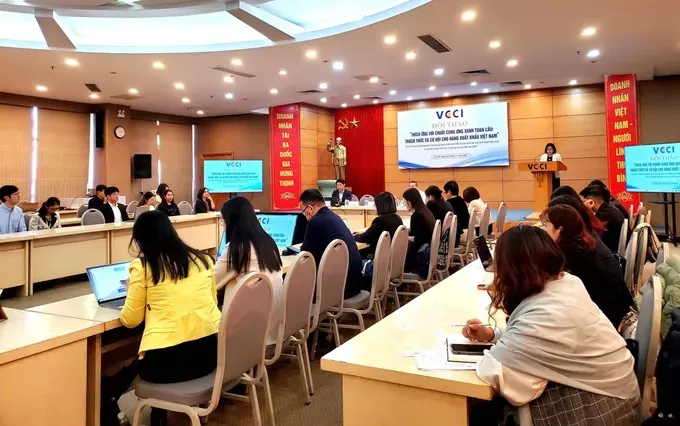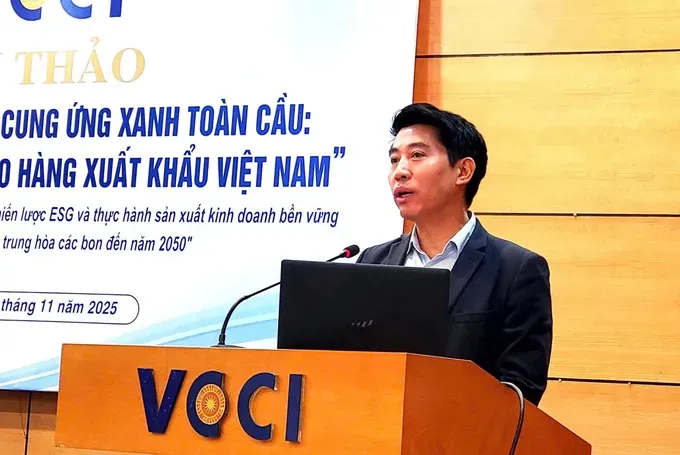
It aimed at helping the business community develop strategies and practices for sustainable production and operations.
The United States and the European Union remain the two principal export markets for Vietnam’s wooden furniture industry, with the U.S. expected to account for roughly 55 percent of the country’s total wood-product export value in 2024. However, small and medium-sized enterprises continue to face significant hurdles in the global green supply chain.
Associate Professor Vu Anh Dung of VinUniversity emphasized that, in the European Union market, Vietnamese wood exporters are increasingly constrained by non-tariff measures, stringent sustainability requirements, and a tight regulatory framework, such as the EU Deforestation Regulation (EUDR), the EU Timber Regulation (EUTR), and disclosure rules under the “Green Deal.”
The EU Deforestation Regulation (EUDR) specifically targets timber and timber-based products, requiring that they be legally sourced in their country of origin and not linked to deforestation or forest degradation after December 31, 2020.
To access the EU market, wood enterprises must provide the Global Positioning System (GPS) of the plots where the timber was produced, and the assessment statement shows “negligible risk” of deforestation. Consequently, exporters are required to make substantial investments in compliance systems to verify the origin, legality, and sustainability of their products, an especially significant challenge for small and medium-sized enterprises.

To reduce the costs of EU compliance, Associate Professor Vu Anh Dung proposed establishing shared compliance-cost groups within key timber clusters, with government support for EUDR due diligence, including the collection of geographic data and standardized risk assessment templates, and the use of the digital platform One Dossier throughout the export process.
Meanwhile, Dr. Vu Thi Phuong Lien of the Academy of Finance emphasized that regular ESG (Environmental, Social, and Governance) reporting based on the three pillars of Environment, Social, and Governance serves as a vital tool for businesses to enhance their credibility and elevate their position within supply chains.
























